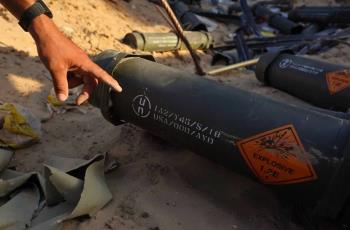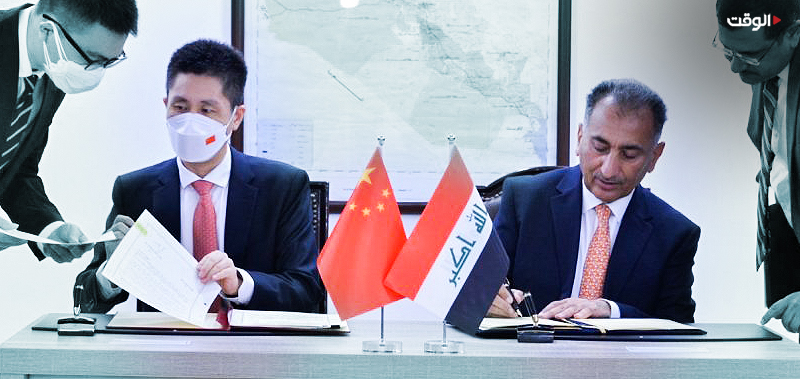Alwaght- Iraqi Foreign Ministry Spokesman Ahmed al-Sahaf announced inking an important agreement with the Chinese ambassador to Baghdad Chen Weiqing which would cancel entry visas for those active in service and production sectors.
The agreement, which was approved by the Iraqi foreign ministry, needs approval of the parliament. According to the Iraqi foreign ministry, the agreement is aimed at strengthening and accelerating strategic cooperation between Baghdad and Beijing in order to fully develop relations in energy, industry, health, cultural exchange, and education sectors.
Such an agreement, indeed, can yield positive results for trade, culture, economy, and education sectors of the two countries. Still, they pursue special goals behind this deal.
China seeking settling energy concerns
Over the past few years, Iraq has become the main focus of Chinese investment under the One Belt, One Road initiative. In 2013, China launched the ambitious initiative to strengthen its trade ties with the rest of the world. The main focus of the project is to increase China's economic partnership with other countries based on investment in the infrastructure of the countries along the way, and in recent years, the Arab world and the West Asian region have become Beijing's main focus. As part of the plan, Chinese investment in the Arab and West Asian countries increased by nearly 360 percent and construction participation by 116 percent compared to 2020.
Iraq, meanwhile, has been the main target of China's Road and Belt infrastructure projects since last year, receiving $10.5 billion for investment in several projects, including a large-scale oil refinery. Actually, Iraq is the third largest partner of the initiative in energy projects, after Pakistan and Russia.
Along investment in the initiative, Chinese officials appear to be seeking energy security for the coming years and decades with a focus on Iraq as a supplier. The Chinese have been seriously considering entering the Iraqi oil market since the signing of an agreement between Beijing and Baghdad in the government of Prime Minister Adel Abdul Mahdi in 2019. Especially after oil companies such as ExxonMobil, British Petroleum, Shell, and Lukeoil stopped their extraction operations under the pretext of terrorist attacks, Chinese companies started work in major Iraqi oilfields as they adopt easier standards compared to Western companies and no opposition to them from Iraqi public.
Al in all, the presence of Chinese companies in Iraq's energy sector has increased dramatically over the past few years, with Beijing seeking to invest in 78 of the country's oil fields. Al-Faw oil refinery, for example, has been handed over to a consortium of Chinese companies at a cost of $7 billion. Chinese companies also operate as major or minor contractors in 15 oil fields in southern Iraq.
Iraq eying strategic place in One Belt, One Road project
After years of reliance on the US and Europe, in recent years, Iraq leaned to finding alternative paths for the development of various sectors of the economy, industry, and trade. Iraqi strategists and decision-makers have come to believe that the West's position in the world order and economy has diminished and that a powerful actor like China is emerging.
Iraq officially initiated its joining the Chinese trade initiative when during a five-day visit to China PM Abdul Mahdi signed $500 billion in economic agreements with Beijing. During the visit, eight agreements and MoUs were signed, and this pact was implemented on in early October with a Chinese deposit of $500 billion in a special fund set up for this purpose. Under Beijing-Baghdad agreement, the amount was set to be provided by daily sale of 100,000 barrels of Iraqi oil and $10 billion from Chinese banks' finances.
Although in PM Mustafa al-Kadhimi's government the West put the grids under the implementation of the agreement and slowed it down, the two countries are actively involved in energy, solar power, and airport construction projects. China is now Iraq's largest trade partner, with cooperation perpetually continuing between them. Successful partnership can inspire domino closeness to China of other Arab countries.



























